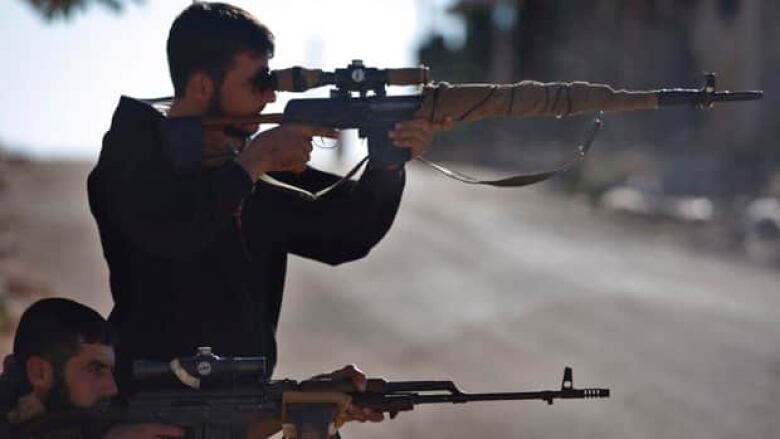Russian airstrikes in Syria about regaining global status
But hitting rebels while the U.S. attacks ISIS raises the chance the rivals will hit each other
Whenever a conversation turns towards Russia and its plans, those involved are usually only seconds away from hearing someone quote Winston Churchill.
The British PM's famous line that Russia is "a riddle, wrapped in a mystery, inside an enigma" has, over the decades, often been presented as the last word on Moscow's foreign policy.
It's a good line from a good speech. But Churchill hadn't finished his thought.
There is, he added, perhaps a key to understanding Russia's actions.
"That key is Russian national interest."
- Should we cry or rejoice as Russia steps up in Syria?
- Assad looks like clear winner of U.S.-Russia duel at UN
- Russia's backing of Assad stokes fears of worsening conditions in Syria
And some analysts say that's exactly why Russian President Vladimir Putin sent the Russian air force into Syria this week not so much to protect his ally, Syrian President Bashar al-Assad, but to maintain Moscow's presence in the region and rebuild its status on the international stage.
"This goes way beyond Syria," says Sim Tack, a military analyst at Stratfor, a geopolitical intelligence and adviser firm based in Austin, Texas.
Russiasometimes shoots things down they shouldn't. AnalystJeffrey White
"Russia is actually playing a much bigger game, which relates to Russia's position in the Middle East, which has been decreasing. They've been losing influence," he says.
"This is a way to come back table as a player ... and also on the international level."
The crisis in Syria and the broader region "has been incredibly frustrating" for Russia, agrees Aram Nerguizian, an analyst with the Washington-based Center for Strategic and International Studies.

"It's not a matter of who's running Syria. What they want is to maintain strategic access in the Mediterranean."
Moscow would likely lose its naval base in Syria its only one in the Mediterranean if the Syrian regime fell. It might also possibly lose whatever other military or intelligence assets it has in the country.
Jeffrey White, an analyst with the Washington Institute for Near East Policy, says Russia has good reason to support the Assad regime.
Stability for Assad gives Moscow "the ability to influence decision-making in Damascus and it gives them military access to a number of facilities in Syria," says White.
Unforeseen consequences
But how far will Russia go to protect those interests? Is the arrival of its air force the first step towards a largermilitary presence? Or is this as far as Putin is willing to go?

One recent Russian press report, cited by the news agency Reuters, claimed that Russian soldiers about to go to Syria complained to their superiors and the country's human-rights council about the deployment and indicated they do not want to go.
One soldier, speaking anonymously to a reporter, said, "We don't want to go to Syria. We do not want to go die there."
If this report is true, the Kremlin should be worried, say experts. Russians generally support the recent annexation of Crimea even though the war in eastern Ukraine is not going well but recent polling suggests they are against interventions abroad, with 77 per cent reportedly opposing Russian boots on the ground in Syria.
Stray bullets
There's also the consideration that Russia and the U.S. could however inadvertently end up shooting at each other; friendly fire being a risk when even the best of friends are on, or near, the same battlefield.
Can the U.S. and its allies continue to make airstrikes against ISIS, while Russia and pro-Assad forces are simultaneously exchanging fire with the Syrian rebels, and ISIS, without a stray bullet eventually hitting the wrong target?
Wednesday morning's attack by Russia on Homs was reportedly preceded by a warning to the U.S.-led coalition, though there were unconfirmed reports it didn't come through the usual channels or in enough time to be helpful.
- Russia-U.S. talks on Syria do little to stem flow of refugees
- Assad blames Europe for refugee crisis
- Russia ramps up military presence in Syria, critics fear end game
Analysts say the risk is low, but should be taken seriously.
"Neither side wants to get caught in a shooting war, on the ground or in the air," Nerguizian says, and it's expected the Russian and U.S.-led forces will be flying their missionsin different parts of the country.
That said, White notes dryly, "Russia sometimes shoots things down they shouldn't."
With files from Reuters













_(720p).jpg)


 OFFICIAL HD MUSIC VIDEO.jpg)
.jpg)



























































































